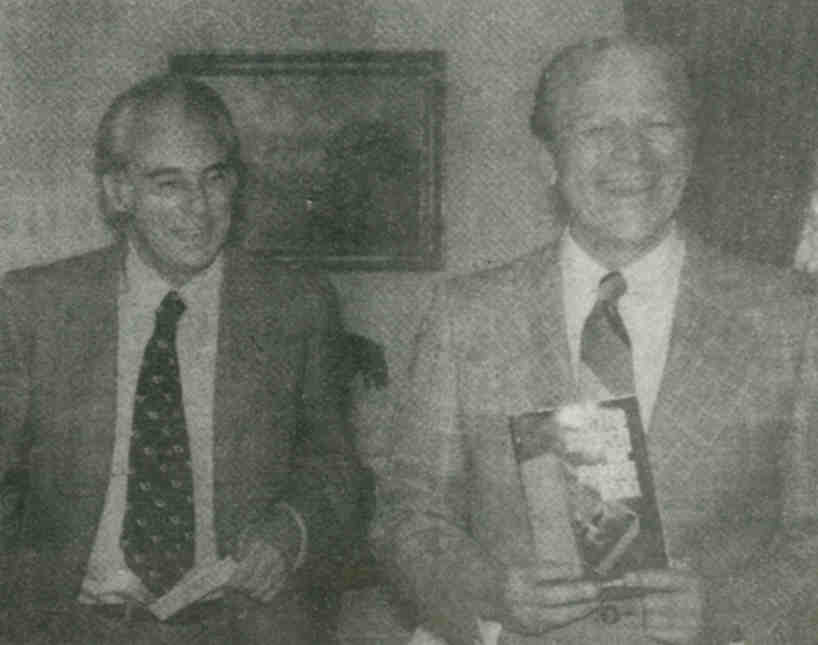 |
|
|
|
|
|
by Christopher Xeneopoulos Janus |
 Christopher Janus and President Ford in the Oval Office |
What comes to mind now is a wonderful meeting with President Gerald Ford in the Oval Room at the White House. I am among the millions who mourn his death last January. He was a fine president. He brought a warm sense of unity to the party and to the country. |
|
|
|
|
|
I, of course, disagreed. That afternoon I called Donald Rumsfeld, our former Secretary of Defense and at the time. He was the excellent chief of staff to President Ford. Rumsfeld agreed with me and in two hours called me back to say I had a breakfast meeting with President Ford at nine in the morning and I could bring my friends. He said to come early and have a quick tour of the White House. At nine 0' clock we were ushered to the Oval Room and the president got up from his desk. He greeted us. Rumsfeld obviously told the president a few things about me for he greeted me saying "I understand you've been to China. I'd like to hear about your trip and the Peking Man fossils. I introduced George Duffy and his daughter, Karen, and gave him the statue. But before this he looked at the statue we brought and said" Hey, did they lose for once? That's a fine addition to our art collection. Now keep up the good work and do more fine things." "Now, sit down and let's have some breakfast," he said. The President then brought us some sweet rolls and filled my cup of coffee. It was a wonderful, very friendly meeting-the kind of meeting the President was known for. The President then turned to me and said, "Chris, I understand you've written a book regarding the search for the missing fossils. Did you bring a copy of the book? I'd like to see it." "Yes, Mr. President. I just happen to have a copy!" To my great surprise, the President said, "Come, let's take a picture." You can imagine what this meant to my publisher MacMillan who used the picture in all five foreign languages copies of the book and much success. The President then said I should ask the State Department to help me and said I could tell them this was his recommendation. I, of course, was immediately pleased as was George Duffy and his daughter. I thanked the President and Donald Rumsfeld for a memorial event in my life. I'm concluding this essay with some quotes from the President and information about him from various sources: "I was the only Vice President of the United States to become president upon the resignation of a chief executive." Ford was challenged by major economic problems including a recession, rapid inflation, and high unemployment. The economy began to recover in 1975, when the Vietnam war ended with a Communist victory. Ford was an athletic man who loved sports. He often turned to the sports section of his newspaper before reading other news. Ford starred as a football player in high school and college, and football had a major influence on his life. He once said, "I know the value of team play. It is, I believe one of the most important lessons to be learned and practiced in our lives." Ford also swam regularly and enjoyed golf and skiing. Public faith in government had plunged to its lowest level in years. Close observers of President Ford at work in the White House are impressed by his composure in the midst of confusing and conflicting demands on his attention and by the control he maintained as a man "at home with himself." His political heroes are Abraham Lincoln, Harry S. Truman and Dwight D. Eisenhower -Presidents whose influence and example may well affect his own conduct of the Presidency in carrying out his repeated pledge to the American people to do the best he could for the country. |
|
|
(Posting date 20 April 2007) HCS encourages readers to view other articles and releases in our permanent, extensive archives at the URL http://www.helleniccomserve.com/contents.html. |
|
|
|
|
2000 © Hellenic Communication Service, L.L.C. All Rights Reserved.
http://www.HellenicComServe.com |
|
